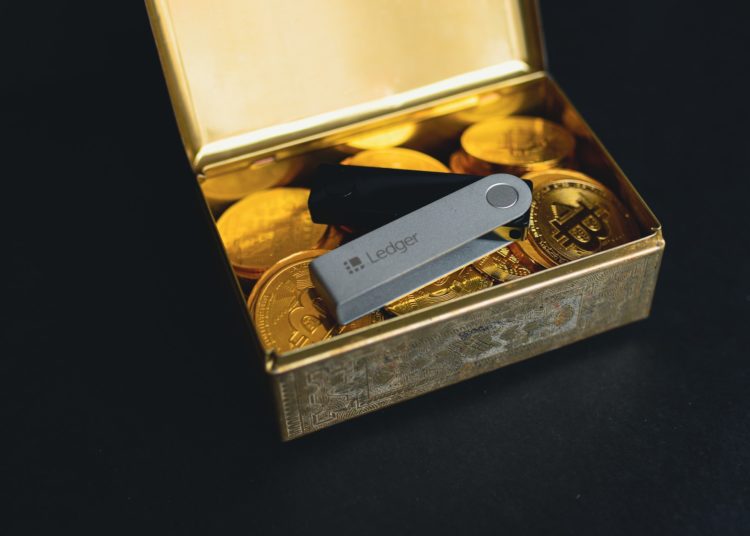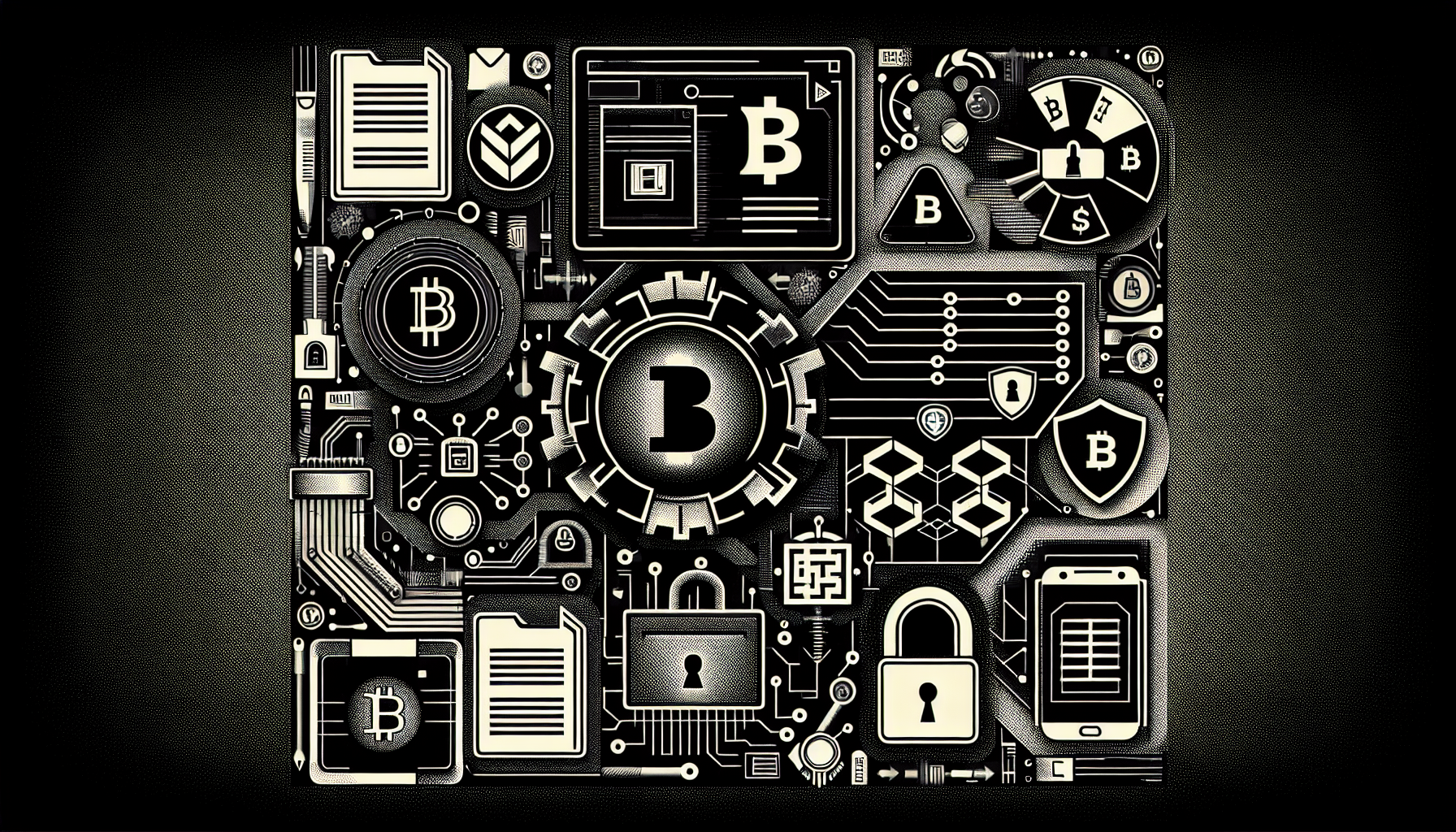In the world of cryptocurrency, securing your digital assets is paramount. With various options available, the debate between hardware vs software wallets has become increasingly relevant. As more people dive into the realm of cryptocurrencies, understanding the differences between these two types of wallets is crucial for safeguarding your investments. In this blog post, we’ll explore the pros and cons of hardware and software wallets, helping you make an informed decision on which option best suits your needs. Whether you’re a seasoned trader or a newcomer to the crypto scene, this guide will clarify the intricacies of both wallet types, ensuring your assets remain secure in an ever-evolving digital landscape.
Hardware vs Software Wallets
When managing your cryptocurrency, you can choose between hardware and software wallets. Each has unique features, so finding the right one for your needs is important. Knowing the differences can help simplify your decision.
| Type of Wallet | Description |
|---|---|
| Hardware Wallets | Little gadgets that keep your secret keys offline, boosting security by a mile. |
| Software Wallets | Apps or programs you use online to store and move your digital money. |
Hardware Wallets: These devices act like tiny fortresses, securely storing your secret codes and signing transactions without needing the internet. Cold wallets, like the Ledger Nano X and Trezor, enhance security by staying offline, making them trusted options for keeping your cryptocurrency safe. Software Wallets: Software wallets offer a convenient way to manage your digital money on your phone or computer, letting you send and check your balance easily. However, they can be more vulnerable to online threats, so staying vigilant about security is important for your peace of mind. Do you want to know more? Check out handy guides like CryptoWallet for Beginners or CryptoWallet Comparison for a deeper dive.
Importance of Wallet Security
Protecting your digital assets is crucial. With so many online scams, the risk of losing your digital currency is very real. Choosing the right hardware crypto wallets can save you from losing your hard-earned money.
- Hardware Wallets: By staying offline, hardware wallets decrease the chance of hacks. You need to hook it up through USB to verify anything, giving you a super secure check before moving coins around.
- Software Wallets: These wallets are handier but riskier and require savvy online use. Phishing is also a real threat, so strong passwords and two-factor logins are a must.
In the debate of hardware wallets vs software wallets, understanding the nitty-gritty helps everyone keep their digital riches on point. If you’re just getting started, check out resources like How to Choose a Crypto Wallet or The Best Crypto Wallets 2024 to arm yourself with recommendations.
Hardware Wallets Explained
Definition and Functionality
Hardware wallets what’s the difference? Think of these devices as your digital security guards, always ready to protect your cryptocurrency. They safely store your private keys in a special chip, signing transactions without needing an internet connection. This means your sensitive information stays secure, much like a treasured keepsake hidden from prying eyes. You can feel at ease knowing that when you buy or spend crypto, your data is well-protected from online threats.
| Feature | Description |
|---|---|
| Storage | Keeps your private keys in a digital fortress |
| Signing | Deals approved right on the spot, no internet needed |
| Security | Protects you from online threats |
Benefits of Hardware Wallets
Hardware wallets strut their stuff with a list of perks, especially for serious crypto aficionados who treasure security and durability. Check out the golden highlights:
- Top-Notch Security: Keeping those private keys away from cyberspace makes these wallets less attractive to hackers. It’s the Fort Knox of crypto protection—perfect for anyone with a hefty stash.
- Keeping Nosy Hackers at Bay: Signing deals offline is like whispering your bank PIN safely into your ear, away from eavesdropping. It drastically cuts down on the chance of someone sneaking off with your assets.
- Built Tough: These wallets often come armored, shrugging off drops and bumps like champs. So, if durability is your jam, you’re in safe hands here—it’s hardproof versus digital fluff.
- User-Friendly: Even if you’re more of a buffering video than a high-speed download, these gadgets make handling crypto a breeze. No degree in rocket science is needed. They slickly connect with exchanges, too.
Of course, while these wallets are strong defenders, they’re not invincible. Lose one, and your crypto could be as gone as yesterday’s Snapchat. So keep ‘em safe to avoid the sorrow of losing your money.
Top Hardware Wallets
For those knee-deep in the world of cryptocurrency, finding a safe place to stash your digital treasure is key. Hardware wallets are the go-to choice for many in the crypto community. Let’s break down two of the top contenders you’ll likely come across: the Ledger Nano X and the Trezor Model T. 
The Ledger Nano X is a bit of a superstar when it comes to hardware wallets. It’s loved for its flexibility and rock-solid security. Got Bitcoin, Ethereum, and maybe a little Dogecoin? No worries, this wallet’s got you covered with support for over five thousand cryptocurrencies. What’s in the package?
- OLED Screen: It’s like having a tiny high-tech dashboard, making it a cinch to scroll through options and confirm transactions.
- Bluetooth Connectivity: Hook it up to your phone and manage your assets on the go without sweating the security stuff.
- 24-word Recovery Seed: If the wallet goes missing, you’ve got a lifesaver with this recovery phrase, bringing all your coins back with just those magic words.
- PIN Code Lock: Fancy a little extra security? Set up a PIN to make sure you’re the only one in control.
- CC EAL5+ Secure Element Chip: It’s got a high-tech chip working overtime to keep your info safe.
Ledger Nano X Specifications
| Feature | Description |
|---|---|
| Supported Cryptocurrencies | Over 5,500 |
| Connectivity | Bluetooth |
| Security Features | OLED screen, PIN code, Secure Element chip |
| Recovery Phrase | 24 words |

Let me introduce you to the Trezor Model T. Known for being super easy to use with plenty of security muscle. Handling over 1,000 coins and tokens, this wallet includes top coins like Bitcoin and Litecoin. Here are some of the features:
- Shamir Backup: A fancy name for a backup system that keeps your recovery seeds locked and loaded.
- Custom PINs: Make your life a whole lot safer with PINs that can stretch up to 50 digits. The more you add, the safer you are.
- Independent Physical Verification: You get to double-check each transaction manually, cranking security up a notch.
Trezor Model T Specifications
| Feature | Description |
|---|---|
| Supported Cryptocurrencies | 1,456 |
| Security Features | Shamir Backup, custom PINs |
| Transaction Verification | Independent physical verification |
Both Ledger Nano X and Trezor Model T strike a great balance between keeping crypto assets safe and being user-friendly. [object Object],[object Object],[object Object],[object Object],[object Object]
Software Wallets Explained
Definition and Usage
Software wallets are your digital companions for managing cryptocurrency. Think of them as wallet apps on your phone—securely handling your crypto keys instead of cash. The difference between a hardware wallet and a software wallet is that hardware wallets keep your keys offline, while software wallets keep them accessible online, making it easy for everyone, whether you’re a newbie or experienced. With options like mobile, desktop, and web wallets, you can choose what feels best for managing your assets conveniently.
| Type of Software Wallet | Description |
|---|---|
| Mobile Wallet | Smartphone apps for quick access on the move. |
| Desktop Wallet | Computer software for managing in a comfy spot. |
| Web Wallet | Jump online with your browser for instant transactions. |
Vulnerabilities of Software Wallets
While software wallets can be quite convenient and come with some great features, it’s important to acknowledge that they do have their vulnerabilities. Hot wallets, which are always connected to the internet, can unfortunately attract unwanted attention from cyber threats. Since they’re online, they can become easier targets for hackers and phishing attempts, which is understandably concerning for anyone who values their digital assets. Moreover, if your computer happens to have any troublesome malware lurking around, your software wallet may be at risk too. Malicious software can potentially capture your keys, leading to the distressing possibility of losing your funds. Even reliable wallets like OWNR Wallet need a secure environment to thrive, so it’s crucial to ensure your computer is well-protected. Ultimately, while software wallets provide a lot of appealing features, it’s essential to remain vigilant. Choosing a trustworthy online wallet service can help keep your crypto assets safe and secure in the digital landscape. We all want our investments to feel secure, and being proactive about security can offer peace of mind.
Comparing Hardware vs Software Crypto Wallets
In the wild and wonderful world of crypto, figuring out the difference between hardware and software wallets is kinda like choosing between chunky peanut butter and creamy—whichever you pick, there is no one-size-fits-all solution!
Security Features
If you’re worried about keeping your crypto safe, you’re not alone. Hardware wallets are a solid choice, as they securely store your private keys offline, acting like a protective vault against online threats. Ledger highlights that this makes your assets much harder to steal. In contrast, software wallets can feel risky, like leaving your pet with too many treats. Since they’re always online, they can be vulnerable to malware and phishing attacks. Staying informed and cautious is crucial if you choose this option. Your peace of mind is important, and taking the right steps can help keep your crypto secure. Let’s break down the security features:
| Feature | Hardware Wallets | Software Wallets |
|---|---|---|
| Private Key Storage | Offline in a nifty chip | Online, among the wild web wolves |
| Transaction Signing | Happening offline–top-secret stuff | Online (got to watch your back) |
| Risk of Hacking | Super-duper low | Higher ’cause it’s hanging’ online |
Convenience and Accessibility
Software wallets really stand out for their convenience. They’re easy to set up and provide quick access to your funds, which is great for those last-minute pizza orders. It’s simple enough that it feels like second nature! No wonder they’re expected to make up over half of global e-commerce transactions by 2025—people love instant payment options. In contrast, hardware wallets can feel a bit cumbersome. They require a connection every time you want to make a purchase, making them less convenient for quick transactions. We understand that can be a hassle when you’re just trying to access your coins. Here’s the info on their convenience:
| Factor | Hardware Wallets | Software Wallets |
|---|---|---|
| Setup Complexity | Like building IKEA furniture | A breeze, like butterin’ bread |
| Access Speed | Slows you down a tad | Right here, right now |
| Transaction Ease | Needs the wallet on hand all the time | Easy-peasy, no-sweat approvals |
Deciding which kind suits you comes down to the grand tug of war between keeping your stash safe and keeping it hassle-free.
Factors to Consider
When weighing the options between hardware and software wallets, it’s crucial to keep several points in mind that affect how easy they are to use and how secure they are. We’re talking about how much bang you get for your buck and how safe and sound your crypto stays if things go south.
Cost and Affordability
Cost might just be the deal-breaker between hardware and software wallets. With hardware wallets, you’re looking at a one-time purchase, whereas software options often show up with no price tag unless you’re after those fancy features. Let’s check out the cost breakdown up close.
| Wallet Type | Typical Cost Range | Additional Fees |
|---|---|---|
| Hardware Wallets | $50 – $200 | Might get hit with shipping fees |
| Software Wallets | Free to $100 (extra goodies) | Might incur transaction fees |
If you’re sitting on a stack of cryptocurrencies or playing around with different assets, hardware wallets provide solid offline defense. But for folks just dipping their toes or dealing with smaller amounts, software wallets are a friendly choice given their light-on-the-pocket nature and easy accessibility.
Backup and Recovery Options
Having a backup and figuring out recovery plans are your secret weapons to not freaking out if your device decides to pull a disappearing act. Different wallet types offer their own ways to keep your digital stash within reach.
- Hardware Wallets: When you get started with a hardware wallet, creating a recovery seed phrase is usually Step 1. This magical phrase is your ticket to recover your treasure if the device goes kaput. However, losing your wallet without this all-important seed phrase spells goodbye to your funds forever.
- Software Wallets: These wallets often throw a recovery phrase your way too, but they might also let you use an email or phone number to reclaim your account with a little help from the provider. Still, since they’re online, picking a provider you trust is key to blocking any funny business with your funds.
To wrap it all up, getting a good grip on costs and figuring out how to keep your assets safe are must-haves for picking the wallet that suits your style.
Making the Right Choice
Selecting the right crypto wallet is crucial for keeping your digital assets safe. It can feel overwhelming, but understanding your needs will help you protect your investments and enjoy your crypto journey.
Choosing Based on Needs
The tug-of-war between hardware and software wallets can have you scratching your head. If you’re all about keeping your keys well-guarded, hardware wallets are like that safe deposit box at the bank. They keep your keys cozy and away from online bandits. They’re slower, like molasses in January, but for holding a lot of crypto securely in the long haul, it does the job. Software wallets make trading easy and quick, allowing you to send crypto to friends effortlessly. However, since they’re online, they carry some risk of hacking. While convenient for everyday transactions, just remember to take precautions to keep your assets safe. Your security is important!
| Wallet Type | Security Level | Convenience | Best For |
|---|---|---|---|
| Hardware Wallets | High | Moderate | Long-term storage |
| Software Wallets | Moderate to Low | High | Daily transactions |
Ensuring Crypto Asset Security
No matter the wallet, locking down security is a must. If you’re riding the software wallet wave, go with the big boys with a good reputation. Get savvy with your safety settings – two-factor authentication isn’t just for overachievers. Keep that software fresh to fend off sneaky intruders (OWNR Wallet). If you’re team hardware, treat it like gold – where you park the device matters. These wallets are like that wise elder needing your nod to make a move, ensuring you’ve got the keys and they’re in legit hands before any crypto party can start. It boosts security, sure, but you’ve got to be the responsible one. Some digital wallets flex with extras like tokenization, but don’t let your guard down – keep passcodes under wraps and stay alert about where you’re entering them (NerdWallet). The ball is in your court: think about what you need to stay secure, how you trade, and your crypto lineup. For more tips on nailing the perfect crypto wallet choice, check out our piece on how to choose a crypto wallet.
Frequently Asked Questions
What are Hardware vs Software Wallets?
Hardware vs Software Wallets refers to two types of cryptocurrency wallets. Hardware wallets are physical devices that store your digital assets offline for enhanced security. Software wallets, on the other hand, are applications or software programs that can be installed on your computer or mobile device, providing easier access to your funds.
Can I use both Hardware and Software Wallets together?
Yes! Combining Hardware vs Software Wallets can be a great strategy. You can store the majority of your funds in a hardware wallet for security and use a software wallet for everyday transactions, ensuring a balance between convenience and safety.
How do I choose between Hardware vs Software Wallets?
Choosing between Hardware vs Software Wallets depends on your needs. If you prioritize security and hold a significant amount of cryptocurrency, a hardware wallet is ideal. For frequent transactions and ease of use, a software wallet may be more suitable.
Are Hardware vs Software Wallets expensive?
Hardware wallets typically come with a one-time purchase cost, ranging from $50 to $200, while software wallets are often free to download. Overall, consider your budget and how much cryptocurrency you plan to store when deciding between Hardware vs Software Wallets.



![[secure bitcoin wallets]](https://cryptohashira.com/wp-content/uploads/2024/11/1730320405725x325769434323760060-feature-120x86.png)


![[secure bitcoin wallets]](https://cryptohashira.com/wp-content/uploads/2024/11/1730320405725x325769434323760060-feature-350x250.png)

![[cryptocurrency wallets]](https://cryptohashira.com/wp-content/uploads/2024/10/1730320405708x158684408553168900-feature-350x250.png)










![[crypto asset security]](https://cryptohashira.com/wp-content/uploads/2024/11/1730320405711x482955841305053900-feature-120x86.webp)
